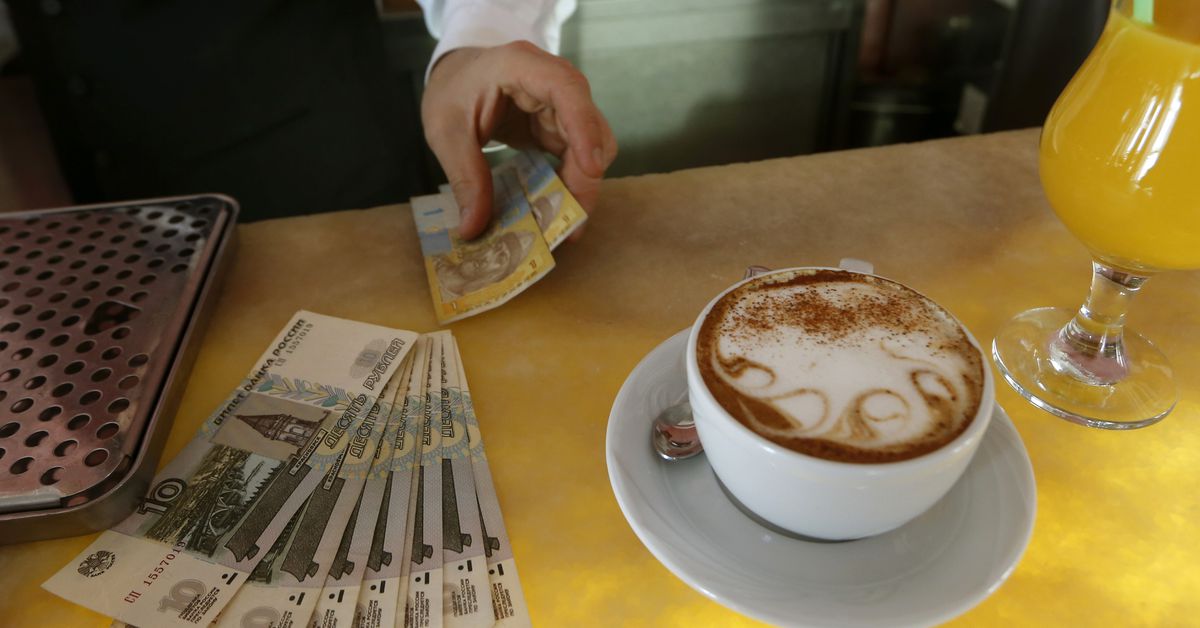Coffee traders seeking advance payment in new deals with Russia

A waiter counts Russian roubles and prepares Ukranian hryvnia for change in a restaurant in Sevastopol March 24, 2014. REUTERS/Vasily Fedosenko
NEW YORK/LONDON, March 2 (Reuters) – Coffee traders are seeking advance payment in any new deal to sell beans to Russia as Western sanctions hit the financial system of the world’s sixth largest importer.
Traders in Brazil, the world’s largest exporter and No. 1 supplier to Russia, said they have added the country to a list of risky and sanctioned destinations that require pre-payment, including Syria, Lebanon and Iran.
Three Europe-based coffee traders at a major commodities trade houses told Reuters they would not take on any new supply orders with Russian roasters, adding business has in any case slowed as the Russian rouble has plunged. read more
Register now for FREE unlimited access to Reuters.com Register
The Russian invasion of Ukraine – the biggest assault on a European state since World War Two – has triggered a Western political, strategic, economic and corporate response unprecedented in its extent and coordination.
“Too many uncertainties right now in terms of their ability to pay, so new deals only with 100% payment upfront,” said coffee broker Thomas Raad, who owns a trading company that ships regularly to risky destinations.
Jose Marcos Magalhaes, head of the Minasul coffee co-op, said advance payment would be required in any new order for Russia, a regular client.
He added that the co-op would also need assurances regarding shipping as container lines are restricting deliveries to Russia since its invasion of neighboring Ukraine. read more
Raad said he is currently negotiating with a Russian buyer, having sent coffee samples for approval, but had yet to discuss payment.
SWIFT, the international banking messaging system used for money transfers, said on Tuesday it was waiting for instructions regarding which Russian banks should be disconnected from the system under the sanctions. read more
Brazil exporters association Cecafe said changes to SWIFT could certainly impact transactions but the situation was still unclear. It said Russia bought 1.2 million bags of Brazilian coffee in 2021 valued at $177 million.
Raad said crypto currency could be a payment option.
“I would take crypto because I am familiar with it, but many exporters wouldn’t”, he said.
For that to work, Raad said, the Russian importer would need access to a crypto broker that can complete both legs of the payment preferably using the USD Coin, a digital stablecoin pegged to the U.S. dollar.
Register now for FREE unlimited access to Reuters.com Register
Reporting by Marcelo Teixeira; Additional reporting by Maytaal Angel; Editing by Kirsten Donovan and Sandra Maler
Our Standards: The Thomson Reuters Trust Principles.






